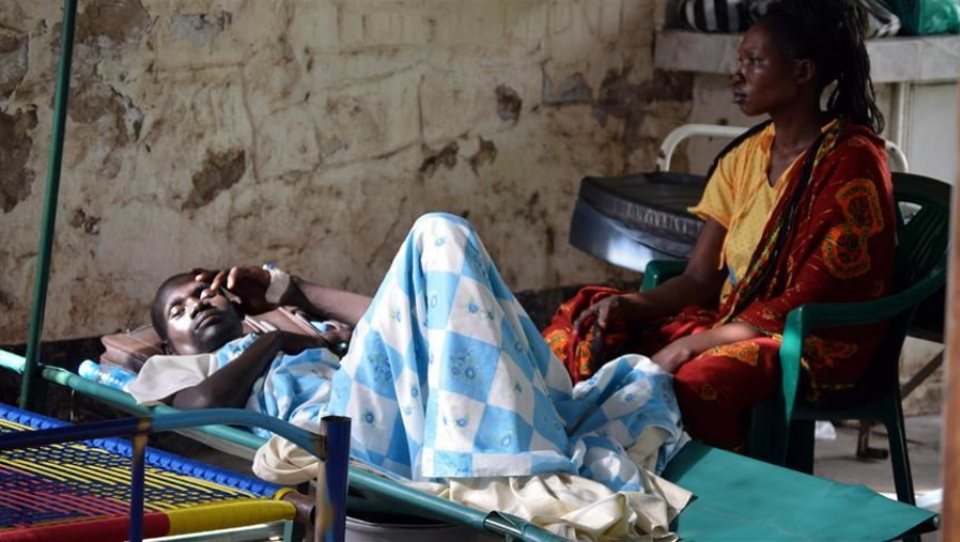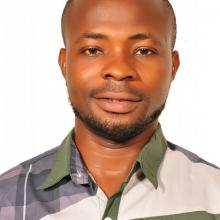78,800 people died of cancer last year in the African nation which has one of the highest global rates of death from the disease
On July 11 this year, Nigeria’s rapper-songwriter Olanrewaju Fasasi, popularly known as Sound Sultan, lost his long-fought battle with Angioimmunoblastic T-cell Lymphoma (AITL), a rare form of non-Hodgkin lymphoma, otherwise known as throat cancer.
One of the biggest names in Nigeria’s vibrant entertainment scene to have died of cancer, Olanrewaju’s death at the age of 44 shook the country. His last post on his Instagram account gave his fans a hint that the music legend was battling an illness that kept him away from the public. He was undergoing treatment in the US at the time of his death.
While his death helped move the needle towards discussions on the topic of cancer in Nigerian society, the disease is still shrouded in secrecy, with societal stigmas pushing many sufferers into isolation, and away from seeking help.
Around the world, cancer is a leading cause of death, accounting for nearly 10 million deaths in 2020, according to a World Health Organization (WHO) report. About one-third of deaths from cancer are due to tobacco use, high body mass index, alcohol use, low fruit and vegetable intake, and lack of physical activity, the report says, adding that cancer-causing infections, such as hepatitis and human papillomavirus (HPV), are responsible for approximately 30 percent of cases in low- and lower-middle-income countries.
Nigeria has one of the highest cancer mortality rates in the world, with approximately four out of five cases resulting in deaths, according to the Global Cancer Observatory. The disease was responsible for over 78,800 deaths in 2020. Women often bear the brunt, as breast and cervical cancers are responsible for more deaths than any others in Nigeria. At least 44,699 women died of cancer last year.
In 2018, Nigeria recorded about 116,000 new cases of cancer and over 70,000 deaths — higher than the estimates for HIV/AIDS. While data is limited, estimates from the Institute for Health Metrics and Evaluation suggest that cancer death rate in Nigeria was 113.7 per 100,000 people in 2017, as against 99.2 per 100,000 people in Kenya.

Poor cancer treatment outcomes
Nigeria has extremely limited social protection, with approximately 95 percent of the population surviving without health insurance. Less than five percent of Nigerians in the formal sector are covered by the National Health Insurance Scheme (NHIS). And an even less, three percent, in the informal sector are covered by voluntary private health insurance.
The country has 4 doctors per 10,000 patients and 16.1 nurses and midwives per 10,000 patients, which is less than the WHO recommendations of 1 doctor to 600 patients and the critical threshold of 23 doctors, nurses and midwives per 10,000 patients.
Experts warn that Nigeria will have a shortage of 50,120 doctors and 137,859 nurses by the end of 2030. Presently, Nigeria accounts for less than 90 oncologists who provide cancer treatment to over 100,000 cancer patients across only nine cancer treatment centres—with only four radiotherapy machines across the country.
Nigeria is a party to the 2001 Abuja Declaration, which mandated African Union member states to allocate 15 percent of their national budgets to healthcare but the country still lags woefully behind. The country spends more than USD1 billion a year on medical tourism.
Nigeria’s president, Muhammadu Buhari’s regular trip to the United Kingdom for vacation and medical check-up is grave testimony to the country's collapsed healthcare system.
Runcie Chidebe, Founder and Executive Director, Health & Psychological Trust Center, popularly known as Project Pink Blue, says the absence of funding, policy implementation and political commitment to beat back cancer is hampering Nigeria’s fight against the disease.
“The stark reality of the situation in the country is a legitimate cause to worry about, attracting and retaining healthcare workers is a greater concern. The mass migration of healthcare workers to foreign countries confirms the problem in our healthcare sector, and it only worsened the poor distribution of health care workers.”
“In the midst of all these, most of the cancer medications, chemotherapy and medicine that are used for cancer patients in Nigeria are not tested on Nigerians, so, the absence of clinical trials with Nigerians is a very serious issue. Because you would not be so sure if the medication is working after being tested with a European or an American and not a Nigerian who is the user.” Runcie told TRT World.
While early detection and advancements in medicine contribute to an overall decrease in mortality and morbidity rates resulting from cancer diagnoses, Runcie says Nigeria hasn’t done much investment in cancer care.
“The cost for cancer screening is very expensive and it creates a huge barrier between diagnosis and survivorship, prostate cancer screening costs about N6,000 to N10,000 or more, a mammogram will cost almost N5,000, clinical breast examination costs N2,000, pap smear test costs about N8,000.”
“If you look at the costs, it might look cheap for an urban dweller but most people in the rural areas cannot afford it.”
What can be done?
Chidebe says Nigeria needs to invest more on cancer screening, research, and control, and prioritise healthcare for all citizens with adequate health insurance.
“Cancer screening today is periodic; Nigeria needs to start tilting towards establishing a national cancer screening program that can mandate our teeming population to cancer screening whenever they visit any public health facility.”
“People only get screened when NGOs flag campaigns or during world cancer day or when they have symptoms, and when cancer begins to present symptoms, it's usually not at a very good stage, that’s why we cannot at this age reduce late detection of cancer.”
Chidebe says that
while talking about treatments, conversations also need to focus on
access to Human papillomavirus (HPV) before arguing that it’s not a
problem that is peculiar to Nigeria but Africa.
“African leaders need
to wake up and begin to take the health of Africans in their hands,
they don’t give a priority to healthcare. As we speak today, Covid-19
vaccines came out in less than one year and people can have access to
vaccination but while less than 3,000 people died of Covid-19 in
Nigeria, more than 70,000 people have died of cancer in one year in
Nigeria.”
“More than 5,000 women have died of cervical cancer, but many of these women do not have access to Human papillomavirus (HPV) which can prevent cervical cancer in Nigerian women and girls, and we are not giving priority to it, the government is not interested.”
In 2018, Nigeria’s federal government developed a Cancer Control Plan — a 4-year programme with a vision to reduce the incidence and prevalence of cancer over the next 5 years and beyond. Part of the plan is the involvement of state governors so that each state would have its own cancer control facility and plan, and key into the federal government’s wider programme.
Chidebe, however, fears that the Cancer Control Plan will end up as a paper policy.
“The plan was supposed to bring about investment and provide prostate cancer screening for men, cervical and breast cancer screening for women. Unfortunately, most of the policies end as policies on papers, they are not achieved in any way, and that is the problem we have in Nigeria.”
This year, president Buhari approved about 729 million Naira cancer health fund in 2020 after years of advocacy by private sector, members of the civil society and cancer survivors,
This year and the year before, the federal government released over N1.5 billion to the Ministry of Health for cancer treatment, but patients cannot access these funds as yet. On November 4, 2021, Members of the Senate Committee on Health raised the alarm that the ministry of health has not disbursed funds meant for cancer patients.
Chidebe says that until the Nigerian government starts prioritising healthcare and sees it as an obligation business and not charity, citizens will continue to wallow in economic woes and health crises.













0 Comments